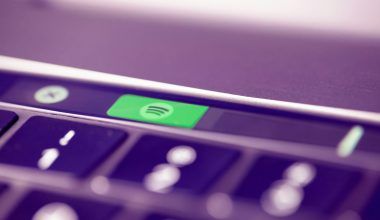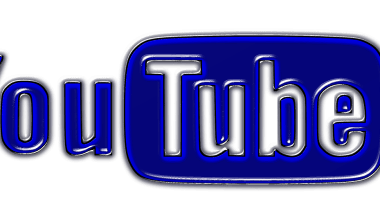Becoming an independent singer can be a rewarding and fulfilling journey. It allows you the freedom to create music on your own terms, build a personal brand, and connect directly with your audience. Here’s a comprehensive guide to help you navigate your way to become an independent singer.
Table of Contents
- Understanding the Independent Music Scene
- Developing Your Talent
- Building Your Personal Brand
- Recording Your Music
- Distributing Your Music
- Promoting Your Music
- Engaging with Your Audience
- Managing Your Career
- Financial Planning and Funding
- Utilizing Technology and Tools
- Staying Motivated and Inspired
- Building a Support Network
- Navigating Challenges
- Leveraging Media and Press
- Expanding Your Reach Internationally
- Continuously Learning and Improving
1. Understanding the Independent Music Scene
The independent music scene is vibrant and diverse, offering opportunities for artists who wish to pursue their musical careers without being tied to a major record label. Being an independent singer means taking control of your creative and business decisions.
- Research the Industry: Learn about the current trends, popular genres, and successful independent artists.
- Networking: Connect with other musicians, producers, and industry professionals. Attend music events, workshops, and networking sessions.
To become an independent singer, understanding the landscape of the music industry is essential. It provides insights into how to navigate your career path effectively.
2. Developing Your Talent
Your talent is your greatest asset as an independent singer. Constantly improving your skills will set you apart in a competitive industry.
- Vocal Training: Regularly practice and take vocal lessons to strengthen your singing abilities.
- Songwriting: Learn to write your own songs. Original content can make you more appealing to your audience.
- Performance Skills: Gain experience by performing at local venues, open mics, and online platforms.
Developing your talent is a continuous process. To become an independent singer, it is crucial to keep honing your craft and expanding your musical abilities.
3. Building Your Personal Brand
Your personal brand is how you present yourself to the world. It should reflect your music style, personality, and values.
- Image and Style: Develop a unique image that represents your music. This includes your fashion, stage presence, and overall aesthetic.
- Online Presence: Create a professional website and active social media profiles. Consistently update your audience with your latest projects and personal updates.
- Logo and Artwork: Design a logo and album artwork that align with your brand.
Building a strong personal brand helps you stand out. It’s an integral part of your journey to become an independent singer.
To further enhance your personal brand, consider creating a cohesive visual and auditory aesthetic. Your brand should be recognizable and consistent across all platforms. Engage with graphic designers and photographers who understand your vision and can help bring it to life. Your social media profiles should have a uniform look that matches your website and promotional materials.
4. Recording Your Music
High-quality recordings are essential for attracting listeners and industry attention.
- Home Studio Setup: Invest in basic recording equipment if you’re on a budget. This includes a good microphone, audio interface, and recording software.
- Professional Studio: For higher quality, consider recording in a professional studio. This can be costly but often results in better sound.
- DIY Production: Learn basic music production skills to create demos and rough tracks.
To become an independent singer, having well-produced recordings is critical. It ensures your music is presented in the best possible light.
Additionally, consider collaborating with experienced producers and sound engineers. They can provide valuable insights and help enhance the quality of your recordings. Experiment with different recording techniques and software to find what best suits your style and sound. Don’t hesitate to invest in mastering services to give your tracks a polished, professional finish.
5. Distributing Your Music
Getting your music out to the public is crucial. There are various platforms and methods for music distribution.
- Digital Distribution: Use services like Deliver My Tune, DistroKid, or TuneCore to distribute your music to streaming platforms like Spotify, Apple Music, and Amazon Music.
- Physical Copies: Consider producing physical copies (CDs, vinyl) for your fans and for sales at live events.
- Music Videos: Create and upload music videos on platforms like YouTube to reach a wider audience.
Effective distribution strategies are key to your success. To become an independent singer, you need to ensure your music is easily accessible to your audience.
To maximize your reach, ensure your music is available on as many platforms as possible. Leverage social media and email marketing to announce new releases and keep your audience informed. Consider creating lyric videos and behind-the-scenes footage to engage your fans further. Collaborate with influencers and bloggers to promote your music and reach new audiences.
6. Promoting Your Music
Promotion is key to gaining visibility and growing your fan base.
- Social Media Marketing: Utilize platforms like Instagram, Facebook, and Twitter to promote your music. Engage with your followers and participate in music-related trends.
- Email Marketing: Build an email list to keep your fans updated about new releases, shows, and merchandise.
- Press and Media: Send press releases to music blogs, magazines, and radio stations. Appear on podcasts and music shows.
Promotion is an ongoing effort. To become an independent singer, you must continuously market your music and engage with potential listeners.
Invest in social media advertising to target potential fans and grow your audience. Create engaging content such as live sessions, Q&A videos, and interactive posts to keep your followers engaged. Network with other musicians and participate in collaborations to expand your reach. Utilize analytics tools to track your promotional efforts and adjust your strategy accordingly.
7. Engaging with Your Audience
Building a loyal fan base requires consistent engagement and interaction.
- Live Performances: Perform regularly at local venues, festivals, and online streaming events.
- Fan Interaction: Respond to comments and messages on social media. Host Q&A sessions and fan meet-ups.
- Exclusive Content: Offer exclusive content like behind-the-scenes videos, early access to new releases, and special merchandise for your dedicated fans.
To become an independent singer, creating a strong bond with your audience is essential. Engaged fans are more likely to support your music career.
Host virtual concerts and live streams to connect with fans who can’t attend in-person events. Create a fan club or Patreon page where dedicated fans can access exclusive content and perks. Encourage fan-generated content, such as covers and fan art, to foster a sense of community. Personalize your interactions with fans to make them feel valued and appreciated.
8. Managing Your Career
As an independent singer, you’ll need to handle both the creative and business aspects of your career.
- Time Management: Balance your time between creating music, performing, and managing your career.
- Organization: Keep track of your schedule, finances, and goals. Use tools like calendars, spreadsheets, and apps to stay organized.
- Legal Matters: Understand your rights as an artist. Consider consulting a lawyer for contracts, copyright issues, and other legal matters.
Managing your career efficiently is vital to your success. To become an independent singer, you need to juggle multiple responsibilities effectively.
Consider hiring a manager or assistant to help with administrative tasks and bookings. Use project management tools to keep track of your progress and deadlines. Stay informed about the latest industry trends and legal changes that may affect your career. Continuously evaluate your goals and strategies to ensure you are on the right path.
9. Financial Planning and Funding
Funding your music career can be challenging, but there are various ways to manage and raise funds.
- Budgeting: Create a budget for your music projects, including recording, marketing, and touring expenses.
- Crowdfunding: Platforms like Kickstarter and Patreon allow fans to support your projects financially.
- Grants and Sponsorships: Look for grants and sponsorships from music organizations, local businesses, and arts councils.
Proper financial planning ensures sustainability. To become an independent singer, managing your finances wisely is crucial.
Explore alternative funding sources such as merchandise sales, licensing deals, and sync placements. Diversify your income streams by offering music lessons, writing for other artists, or composing for media projects. Regularly review your financial plan and adjust it based on your needs and goals. Save a portion of your income for future projects and emergencies.
10. Utilizing Technology and Tools
Leverage technology to enhance your music creation and promotion efforts.
- Music Production Software: Use software like Logic Pro, Ableton Live, or FL Studio for music production.
- Marketing Tools: Utilize tools like Hootsuite for social media management and MailChimp for email marketing.
- Analytics: Track your performance on streaming platforms and social media to understand your audience and improve your strategies.
Using the right tools can streamline your processes. To become an independent singer, adopting technology is essential.
Explore new technologies such as AI-driven mastering services, virtual reality concerts, and blockchain for music distribution. Stay updated on the latest tools and trends in the music industry. Invest in quality hardware and software to enhance your production and promotional efforts. Use data analytics to make informed decisions and optimize your marketing campaigns.
11. Staying Motivated and Inspired
The journey of becoming an independent singer can be long and demanding. Staying motivated is crucial.
- Set Goals: Establish short-term and long-term goals for your music career. This helps you stay focused and measure your progress.
- Stay Inspired: Surround yourself with inspiring people and experiences. Listen to diverse music, collaborate with other artists, and take breaks when needed.
- Self-Care: Take care of your mental and physical health. Regular exercise, proper rest, and a balanced lifestyle can significantly impact your creativity and productivity.
Staying motivated and inspired is key to your journey. To become an independent singer, you need to maintain your passion and energy.
Join support groups or communities of other independent artists to share experiences and advice. Attend music workshops and conferences to stay inspired and learn new skills. Keep a journal to document your progress, ideas, and reflections. Celebrate your achievements, no matter how small, to keep your spirits high.
12. Building a Support Network
Having a strong support network is invaluable on your journey to becoming an independent singer. This network can include family, friends, mentors, and other musicians who understand the challenges and rewards of a music career.
- Mentorship: Seek out mentors who have experience in the music industry. Their guidance can be incredibly valuable.
- Collaboration: Work with other artists to create new music and share audiences.
- Family and Friends: Rely on your close ones for emotional support and encouragement.
A support network provides encouragement and practical help. To become an independent singer, surrounding yourself with supportive people is essential.
The path to becoming an independent singer is not without its challenges. Understanding how to navigate these obstacles is crucial for long-term success.
- Rejection and Criticism: Learn to handle rejection and criticism constructively. Use feedback to improve your craft.
- Financial Stability: Balancing a music career with financial responsibilities can be tough. Consider part-time work or freelance opportunities related to music.
- Mental Health: The pressure of building a music career can be stressful. Prioritize your mental health and seek professional help if needed.
To become an independent singer, you must be resilient and adaptable. Overcoming challenges strengthens your resolve and brings you closer to your goals.
14. Leveraging Media and Press
Getting media coverage can significantly boost your visibility and credibility as an independent singer.
- Press Releases: Learn to write effective press releases to announce new music, tours, or significant milestones.
- Media Contacts: Build a list of media contacts including bloggers, journalists, and influencers.
- Interviews and Features: Seek opportunities for interviews and features in music magazines, blogs, and podcasts.
Leveraging media and press helps you reach a wider audience. To become an independent singer, mastering media relations is crucial.
15. Expanding Your Reach Internationally
Taking your music to an international audience can open up new opportunities and increase your fan base.
- International Platforms: Distribute your music on global platforms to reach listeners worldwide.
- Language and Culture: Consider recording songs in different languages or incorporating cultural elements to appeal to international audiences.
- Tours and Festivals: Plan tours and apply to perform at international music festivals.
Expanding your reach internationally enhances your career prospects. To become an independent singer, thinking globally is important.
16. Continuously Learning and Improving
The music industry is constantly evolving, and staying informed about new trends, technologies, and techniques is vital.
- Courses and Workshops: Enroll in music courses and workshops to learn new skills and stay updated on industry trends.
- Books and Resources: Read books, articles, and blogs about music, marketing, and the music industry.
- Feedback and Improvement: Continuously seek feedback from peers and mentors to improve your music and performance.
Continuous learning and improvement keep you competitive. To become an independent singer, committing to lifelong learning is essential..
Conclusion
By following these steps, you can become an independent singer who not only creates amazing music but also reaches a broad audience and builds a successful career. Embrace your journey, stay dedicated, and let your passion for music drive you forward.
Remember, the journey to become an independent singer is unique for everyone. Stay true to your artistic vision, be persistent, and enjoy the process. The music you create has the power to touch lives and bring people together. Enjoy every moment of your musical journey and keep striving for excellence.
For further reading, explore these related articles:
- Instagram Marketing for Musicians
- The Ultimate Guide to Digital Marketing for the Music Industry
- Digital Marketing for Independent Musicians
For additional resources on music marketing and distribution, visit Deliver My Tune.






